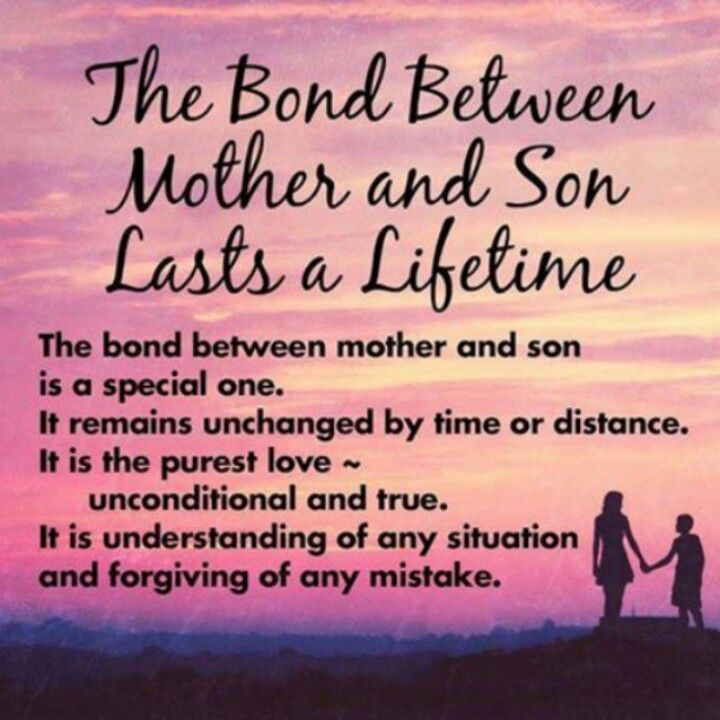Being proud of your son is one of the most fulfilling experiences in life. It's a moment when you realize all your hard work, sacrifices, and love have paid off. But what does it really mean to be proud of your child? Is it just about their achievements, or is there more to it? In this article, we'll explore the deeper meaning behind those simple yet powerful words: "proud of u son." And trust me, it's not just about grades or trophies—it's so much more than that.
Parenting isn't easy, and every parent knows that raising kids comes with its own set of challenges. From sleepless nights to endless worrying, the journey can sometimes feel overwhelming. But when you see your son grow into a kind, compassionate, and responsible person, all those struggles melt away. That's when you truly understand the weight of saying, "I'm proud of you." It's not just words—it's an emotion, a connection, and a testament to the bond between parent and child.
So, if you've ever found yourself wanting to express how proud you are of your son but didn't know where to start, you're in the right place. This article will guide you through the importance of expressing pride, the impact it has on your child, and practical ways to show your support. Let's dive in!
Table of Contents
- The True Meaning of Being Proud of U Son
- Why It Matters to Say "I'm Proud of You"
- A Parent's Journey: Biographical Insights
- The Emotional Impact on Your Child
- How to Show Your Pride
- Overcoming Challenges in Parenthood
- Long-Term Benefits of Expressing Pride
- Common Mistakes Parents Make
- Celebrating Your Son's Achievements
- Final Thoughts: Keep Saying "Proud of U Son"
The True Meaning of Being Proud of U Son
When we say "proud of u son," it often carries a deeper meaning than just acknowledging success. It's about recognizing the effort, determination, and resilience your child shows every day. Sure, getting good grades or winning a sports competition is awesome, but what about the times they stood up for a friend or helped someone in need? Those moments matter just as much, if not more.
In today's fast-paced world, it's easy to get caught up in measuring success by tangible results. But being proud of your son goes beyond that. It's about seeing the person he's becoming—the values he holds, the choices he makes, and the way he treats others. So, next time you want to express pride, think about the bigger picture. What qualities do you admire most in your son? Let him know!
Defining Pride in Parenthood
Pride in parenthood isn't about comparing your child to others. It's about celebrating their uniqueness and supporting them through both victories and setbacks. Every child is different, and that's something to be proud of. Whether your son loves art, science, or sports, encourage him to pursue his passions and remind him that his efforts matter.
Here are a few things to consider when defining pride:
- Focus on effort rather than outcome
- Value kindness and empathy
- Celebrate individuality
- Encourage growth and learning
Why It Matters to Say "I'm Proud of You"
Telling your son you're proud of him isn't just a nice gesture—it's essential for his emotional well-being. Studies show that children who receive positive reinforcement from their parents tend to have higher self-esteem, better mental health, and stronger relationships. Saying "I'm proud of you" reinforces the idea that he's valued and appreciated for who he is.
But here's the thing: many parents struggle to express pride openly. Maybe they think it'll make their child complacent, or maybe they're unsure how to say it without sounding cheesy. The truth is, there's no wrong way to express pride as long as it comes from the heart. Whether it's a simple "good job" or a heartfelt conversation, your words can leave a lasting impact.
Research Backed Evidence
According to a study published in the Journal of Child Psychology and Psychiatry, children who receive consistent praise and encouragement from their parents are more likely to succeed academically and socially. The study also found that these children exhibit lower levels of anxiety and depression. So, if you're wondering whether expressing pride makes a difference, the answer is a resounding yes!
A Parent's Journey: Biographical Insights
Let's take a moment to reflect on the journey of parenthood. Every parent has their own story, filled with highs and lows. To give you a better understanding, here's a brief biographical overview of what it means to raise a child and watch them grow into someone you can truly be proud of.
| Aspect | Details |
|---|---|
| Name | Parent X |
| Age | 45 years old |
| Occupation | Teacher |
| Family | Married with two children |
| Hobbies | Reading, gardening, volunteering |
Parent X, like many others, faced numerous challenges while raising their children. From dealing with tantrums during toddlerhood to navigating the complexities of adolescence, every phase brought its own set of lessons. Yet, through it all, the sense of pride in watching their son develop into a caring and responsible individual remained constant.
Key Milestones in Parenthood
Every parent has moments they'll never forget. Here are a few milestones that stand out:
- First day of school
- Graduation ceremonies
- Acts of kindness witnessed
- Overcoming personal challenges
The Emotional Impact on Your Child
When you tell your son you're proud of him, you're not just boosting his confidence—you're shaping his emotional landscape. Children who regularly hear words of affirmation tend to develop a healthier sense of self-worth. They learn to trust themselves and approach challenges with optimism.
On the flip side, withholding praise or focusing solely on criticism can have negative consequences. It may lead to feelings of inadequacy, low self-esteem, and even anxiety. That's why it's crucial to strike a balance between constructive feedback and genuine praise.
Building Emotional Resilience
Expressing pride helps build emotional resilience in children. It teaches them that failure is part of the process and that success isn't defined by perfection. Instead, it's about growth, perseverance, and learning from mistakes. By reinforcing this mindset, you empower your son to face life's challenges with courage and determination.
How to Show Your Pride
Now that we understand the importance of expressing pride, let's talk about how to do it effectively. There are countless ways to show your son you're proud of him, and the best approach depends on your relationship and his personality. Some kids thrive on verbal affirmation, while others prefer actions over words. Here are a few ideas to get you started:
- Write a heartfelt letter
- Create a memory book of his achievements
- Celebrate milestones with a special outing
- Give him a meaningful gift
- Share your pride with others (e.g., grandparents, teachers)
Remember, the key is sincerity. Your son will know if you're genuinely proud of him, so don't be afraid to let your emotions shine through. Whether it's a big gesture or a small one, what matters most is the love and support behind it.
Verbal vs Non-Verbal Expression
Some parents find it easier to express pride through actions rather than words. If that sounds like you, consider incorporating non-verbal expressions into your routine. A hug, a high-five, or even a smile can go a long way in showing your son you're proud of him. Combine this with occasional verbal affirmations to create a well-rounded approach.
Overcoming Challenges in Parenthood
No one said parenting would be easy, and there will inevitably be times when you doubt yourself or feel like you're not doing enough. The key is to stay focused on what truly matters: nurturing your child's growth and well-being. Here are a few tips for overcoming common challenges:
- Practice self-care to maintain your energy and patience
- Seek support from other parents or professionals when needed
- Set realistic expectations for yourself and your child
- Embrace imperfection and learn from mistakes
Remember, you're not alone in this journey. Every parent faces obstacles, but the love and effort you put into raising your son make all the difference. Keep pushing forward, and don't hesitate to reach out for help when necessary.
Learning from Mistakes
Mistakes are an inevitable part of parenting, and that's okay. What matters is how you handle them. Use setbacks as opportunities to grow and improve. Talk openly with your son about your own mistakes and what you've learned from them. This fosters a culture of transparency and mutual respect, strengthening your bond in the process.
Long-Term Benefits of Expressing Pride
The impact of expressing pride extends far beyond childhood. As your son grows into adulthood, the positive reinforcement he received as a child will continue to shape his life. He'll carry those words of affirmation with him, influencing his decisions, relationships, and overall outlook on life.
Research shows that individuals who grew up in supportive environments tend to have healthier relationships, better career prospects, and a stronger sense of purpose. By expressing pride in your son, you're setting him up for a lifetime of success—not just in terms of achievements, but in terms of happiness and fulfillment.
Creating Lasting Memories
One of the most beautiful aspects of parenthood is the opportunity to create lasting memories with your child. Whether it's through celebrating milestones or simply spending quality time together, these moments become the foundation of your relationship. Make it a point to document these experiences, whether through photos, videos, or written records. Years from now, both you and your son will look back on them fondly.
Common Mistakes Parents Make
While expressing pride is essential, there are a few pitfalls to avoid. Here are some common mistakes parents make when trying to convey their feelings:
- Comparing their child to others
- Overemphasis on material achievements
- Withholding praise until "perfect" results are achieved
- Using criticism instead of encouragement
Remember, the goal is to celebrate your son for who he is, not what he does. Focus on his unique qualities and the effort he puts into everything he does. By doing so, you'll create a nurturing environment where he feels safe to explore, grow, and thrive.
Avoiding Comparison
One of the biggest mistakes parents can make is comparing their child to others. Every child is different, and what works for one may not work for another. Instead of focusing on external benchmarks, celebrate your son's progress and achievements in his own right. Encourage him to set personal goals and work towards them at his own pace.
Celebrating Your Son's Achievements
Finally, let's talk about celebrating achievements. Whether it's acing a test, winning a competition, or simply showing kindness to a friend, every accomplishment deserves recognition. Here are a few ideas for making these moments special:
- Plan a surprise party
- Frame certificates or awards
- Create a scrapbook of memories
- Take a family trip to celebrate
The key is to tailor the celebration to your son's personality and preferences. Some kids love big gatherings, while others prefer quiet moments with


